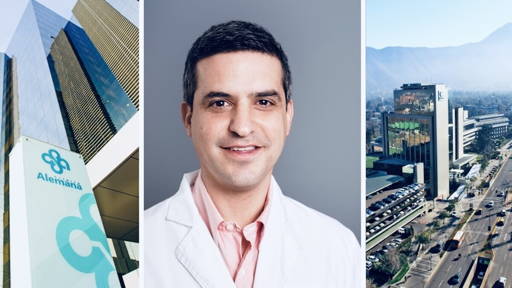The deployment of artificial intelligence (AI) within healthcare opens up new perspectives, especially in precision medicine and cancer treatment. But, two scientists warn, we should not rely on AI being, or becoming, the stand-alone solution to all healthcare challenges. According to them, the key to effective and reliable healthcare applications lies precisely in combining AI with classical mathematical models as well as ethical data sharing.
AI is often seen as the promise for personalised care. Thanks to algorithms that recognise patterns in large amounts of data, doctors can more accurately predict how a tumour develops or responds to therapies. In addition, as has been demonstrated several times, AI-driven diagnostics is also a promising development. Using well-trained AI algorithms, diseases can be detected faster, at an earlier stage or more accurate.
AI versus mathematics
Wonderful and very welcome developments, but... AI also has its limits. When little data is available - for example, in new treatments like immunotherapy - AI can produce wrong or biased results. Mathematical models, based on proven biological mechanisms, then offer a solution by better explaining why an outcome makes sense.
Dr Elana Fertig of the Institute for Genome Sciences (IGS), and Dr Daniel Bergman of the University of Maryland School of Medicine (UMSOM), argue in Nature Biotechnology that mathematical modelling is currently underutilised in oncology. "AI is data-driven, mathematical modelling is knowledge-driven. Precisely in that difference lies the power of a combined approach," Fertig said.
A good example is predictive simulations. Mathematical modelling allows researchers to simulate virtual cancer cells responding to treatments within a digital tumour environment. This offers insight into the mechanism behind a treatment, something AI is not yet capable of on its own. "AI can do a lot, but the biological explanation is often missing. For precision treatment, that transparency is essential," Bergman argues.
Reproducibility and open science
In addition to technological robustness, the researchers also argue for reproducible science. In another article published in Cell Reports Medicine, the two scientists stress the importance of open data and transparency. Only by making data and analysis tools accessible to other researchers can outcomes be validated. A crucial step, especially since previous research showed that more than two-thirds (70%) of scientists could not successfully reproduce experiments by colleagues.
Still, open data sharing brings ethical challenges, especially with sensitive genetic or clinical information. The authors argue for a balanced approach that combines privacy, transparency and data quality. This requires clear patient consent, strict standards in data collection and the use of verified open source platforms.
Ultimately, we should aim for an infrastructure where AI and mathematical models complement each other, and where reliable, ethical datasets drive forward-looking healthcare. ‘Only then can we allow AI to flourish as part of a broader digital strategy.Not as a replacement, but as a reinforcement of medical expertise,’ Fertig concludes.









